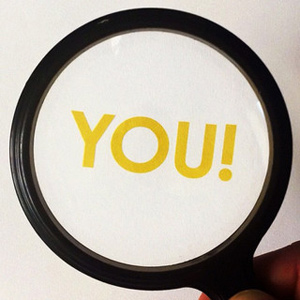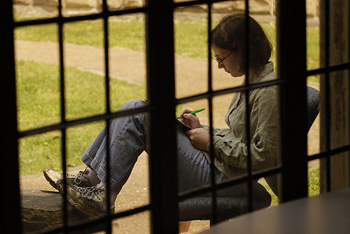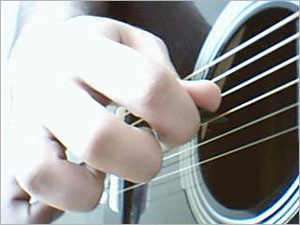
Source: Instagram #Roundseries - #magnifying #glass / #lupa, Marcelo Nava, Flickr
In the previous section, you began thinking about one clearly defined event or situation for your personal narrative. Focusing on one clearly defined event or situation that is meaningful to you is crucial to the success of your piece. Have you ever suffered through a friend’s description of an event that seemed to wander through several seemingly disconnected stages, one confusing part after another? If you have, then you know having a clear focus is important for a listener or reader. Without a defined focus, your audience (in this case, your readers) might get confused and lose interest in your story.

Source: Student Studying, Sewanee: The University of the South, Flickr
Using the graphic organizer in the previous section gave you a jump start on your personal narrative because main ideas such as “friendship” and “personal challenges” were listed at the top of each box. The main idea could also be called the “central idea” because it is the main point of of your personal narrative. Your central idea communicates the essence of the experience you are writing about to your audience.
Having a central or main idea is crucial because it allows you to narrow the focus of your story. Also, the central idea is the unifying element of your personal narrative. In other words, the focus of your story must be maintained throughout the piece, not just in the introduction.
Before you can start writing, then, you need to choose your topic and then narrow your focus. How do you narrow your focus? Let’s look at the chart from the brainstorming graphic organizer again and review the example responses. The goal is to think about (reflect on) each experience. You can try visualizing the event, recreating the emotions you felt, reviewing the people involved, or whatever else stands out in your mind. This is just one step toward ensuring that your topic is not too broad. Here is my chart again. You might want to look at it and then review your own.
|
Personal Challenges
|
The First Time I Tried . . .
|
My First Day of . . .
|
|
Personal Triumphs
|
Friendships
|
Mistakes
|
|
Growing Up
|
Family Traditions
|
Other Important/ Significant Events
|
To help focus your topic, try using these sentence stems to jog your memory.
- This event stands out in my memory because it . . .
- I will always regret or remember this experience because . . .
- This event or experience is worthy to share with others because . . .
For example, if you consider the entries in the first box labeled “Personal Challenges,” you might think the following:

Source: Playing guitar with pick, Babak Babali, Wikimedia
Trying to learn how to play guitar: I will always remember trying to learn to play guitar because it was so hard. It hurt my fingers so much I almost quit after the first lesson.
If you reflect on the box labeled “My First Day of . . . ,” you might have these thoughts:
My first day of seventh grade stands out in my memory because it was one of the best days of my life. That was the day I met the person who would turn out to be my best friend.
The point is to use the reflections you wrote in your chart to decide on one specific event or experience that is particularly significant to you. We will show you another way to do this in the next section.